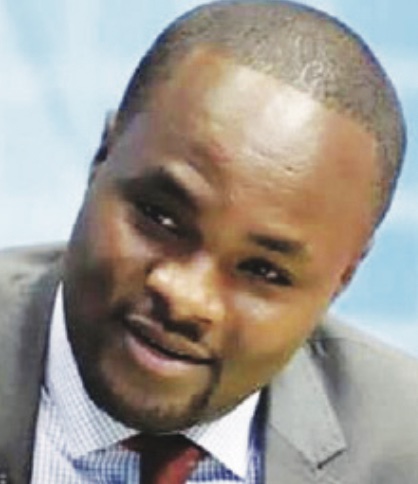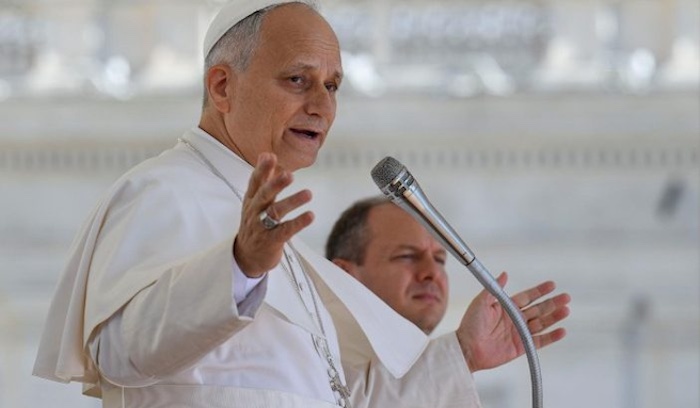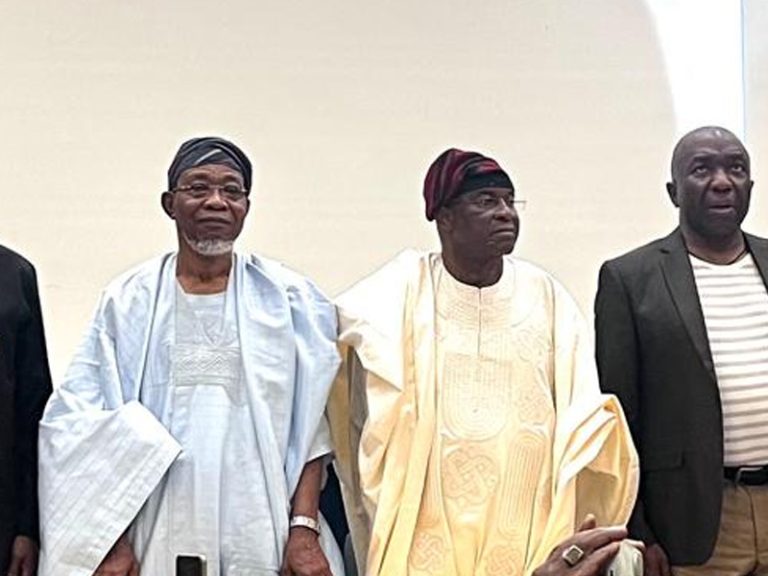
Screenshot
 On Wednesday, 12th November 2025, Pastor Paula White, an American evangelist and spiritual advisor to United States President Donald John Trump arrived in Uganda in a private jet.
On Wednesday, 12th November 2025, Pastor Paula White, an American evangelist and spiritual advisor to United States President Donald John Trump arrived in Uganda in a private jet.
The ostensible reason for her visit was her role as the key speaker at the ‘Command the Future’ conference hosted by Pastor Robert Kayanja at the Miracle Centre Cathedral from 12-16 November.
It appears she also met with President Yoweri Museveni in the course of her visit. Two days after Pastor White’s arrival, on 14th November 2025, the Constitutional Court of Uganda rendered a decision in Human Rights Awareness and Promotion Forum, Centre for Health Human Rights and Development, Prof Ben Kiromba Twinomugisha and Dr Rose Nakayi v Attorney General (Consolidated Constitutional Petitions Nos 10 of 2017 and 25 of 2020) – hereinafter ‘the Human Rights Awareness case’.
In that decision, a majority of the Constitutional Court (Justices Hellen Obura, Asa Mugenyi and Moses Kazibwe Kawumi), among other things, declined to fault Parliament for failing to pass a law, as envisaged by Article 22 (2) of the Constitution, regulating the circumstances under which pregnancies may be terminated.
A significant degree of focus was placed, by the majority, on the fact that Article 22 (2) uses the word ‘may’ as opposed to ‘shall’ with regard to the role of Parliament in delineating the situations warranting such terminations.’
The minority of the Court (Justices Fredrick Egonda-Ntende and Eva Luswata) would have found, among other things, that the State’s omission to pass such a law was a violation of Articles 22 (2) and 79, and would have required the Executive and Parliament to formulate and pass appropriate regulatory legislation within three years of the date of the decision.
Certainly, the issues before the Constitutional Court in the Human Rights Awareness case were particularly difficult ones, implicating issues of deep public import. It is in precisely such instances that Ugandans hope for the Court to bring the full weight of scientific, rational and constitutional thought to the judicial role.
Unfortunately, the majority’s decision was again clouded by certain considerations which cannot but diminish the gravitas and legitimacy of the judgment.
In her lead judgment (with which Justices Asa Mugenyi and Moses Kazibwe Kawumi concurred) Justice Hellen Obura observed as follows: ‘I wish to observe that the petition of lnnocent Ngobi Ndiko & 4 Others v Attorney General & Another (supra) that sought to introduce a no-fault divorce, Fox Odoi & 21 Others v Attorney General & 3 Others that challenged the Anti-Homosexuality Act, and the ones now before this Court are branches of the same tree because they share the same ideological underpinnings.
They are all grounded in principles of personal autonomy, individual liberty, and equality, advocating for the right of individuals to make personal decisions without state interference.
While these ideologies generally align with secular humanism and civil liberties, they also face opposition rooted in religious conservatism, traditional/cultural values, and beliefs about the family’ (at page 33 of the decision).
I commend her Lordship (and the concurring majority) for being clear as to the nature of the ideological struggle within Uganda’s contemporary constitutional conversation. There is certainly a contestation, and the passage quoted sums it up quite accurately.
It is a struggle between rule based on law (with the Constitution being the supreme law) and rule based on religious/ spiritual beliefs and communitarian or traditional positions. On the one hand, is the notion that it is that consensus which is reflected in the letter and spirit of the 1995 Constitution which should illuminate, inform and indeed dictate state action (including legislation).
On the other is the idea that dominant religious belief and popular or majoritarian positions should determine the course of state policy, action and legislation (and perhaps even the judicial role).
However, there is another element of the contestation which is not fully acknowledged in the quoted passage – the influence of the American Christian evangelical movement in Uganda’s governance (Executive, Legislative and Judicial).
At the same time, the clear footprint of this movement is evident in the decision itself. In our column of 1st October 2025, we bemoaned the Uganda Constitutional Court’s unilateral imposition – in the Innocent Ngobi Ndiko case – into our national constitutional discourse, of rather random American and British commentators.
In that case, we decried the gratuitous reference, by Justices Hellen Obura, Eva Luswata, Moses Kazibwe Kawumi and Asa Mugenyi, to such sources as Scott Yenor, Holland Family Law and W. Bradford Wilcox.
The critique centered, in part, on the fact that none of these sources had been cited to the Court by either the petitioners or respondents. Rather, the Court claimed to have ‘accessed’ them as part of a largely undescribed method of judicial ‘material finding’.
In the Human Rights Awareness case, the Constitutional Court only continued this trend. Again, in her lead judgment (with which Justices Asa Mugenyi and Moses Kazibwe Kawumi concurred) Justice Hellen Obura noted: ‘ln the course of preparing this judgment, I have had opportunity to study a number of literature on abortion because I wanted to understand the genesis of advocacy for abortion rights and the impact of abortion on women as I resolve the issues raised in these petitions.
To that end, I accessed a book by Dr. Bernard N. Nathanson …’ (at page 36 of the decision). The decision then proceeds to refer liberally, and with unmitigated approval, to the views of the said Dr. Bernard Nathanson (a total of 9 pages, that is to say pages 36-39 and 43-47). Other sources ‘accessed’ and used in the Human Rights Awareness case include work from the Universities of North Carolina and Michigan (a total of 3 pages, from 48-50) and a Fact Sheet prepared by the Charlotte Lozier Institute (3 pages, from 51-53).
Incidentally, both the Charlotte Lozier Institute and Paula White form critical planks of the ‘America First Policy Institute’ (See, for instance, Pillar III of the America First Agenda, available at https://agenda.americafirstpolicy.com/ freedom-and-self-governance/honor-the-sanctity-of- every-innocent-human-life – of the 6 references cited here, 3 are Op-Eds by Paula White, while 2 are pieces from the Charlotte Lozier Institute).
We repeat, today, what we strenuously argued in the 1st October 2025 column: it is deeply problematic for the Ugandan constitutional conversation to be captured – in an unprincipled manner – by voyagers (including groups like the Charlotte Lozier Institute and, by extension, Paula White and company), especially when the views of those itinerant persons have not been placed before those Ugandan individuals and groups who approached the Court in the first place, for rebuttal and response.
There are known – and more legitimate – ways for such groups engage, even robustly, with Ugandan legal discourse, including through seeking admission in legal proceedings as amici curiae (friends of the Court), as intervenors or even as respondents.
Indeed, this is precisely what Women’s Link Worldwide (WLW) did in the proceedings which resulted in the 14th November decision. This allows any views presented by such a group to be accessed transparently by the petitioners, and respondents, and alternative or additional arguments presented for consideration by the Court.
This is impossible in the more opaque method of post-hearing ‘access’ which reared its head in Innocent Ngobi and which reappeared in the 14th November decision. Whether we (including the Ugandan Judiciary) like it or not, the 1995 Constitution in its current form establishes Uganda as a secular State.
judge

Yes – as a secular State. This is the essence of Article 7 of the Constitution: ‘Uganda shall not adopt a State religion’. Indeed, in its broadest sense, it can and should even be read as ‘Uganda shall not adopt State religions’.
Unfortunately, sections of the Ugandan government seem to be determined to wish away Article 7, and its full implications.
Indeed, this Friday 28th November 2025, the Judiciary of Uganda will once again congregate in the Supreme Court building, for the ‘Quarterly Prayer Breakfast and Thanksgiving’, where the now apparently established ‘Judiciary Pastor’ – Mwami Bishop Joshua Lwere (of the National Fellowship of Born-Again Pentecostal Churches of Uganda and the Senior Pastor of Grace Assembly church) will officiate.
The one addition this time will be the inclusion of Sheikh Mohammed Ali Wasswa, Deputy Mufti of Uganda. The rather obvious tokenism aside, what is to be made of the non-inclusion of clerics from the Anglican, Catholic, Orthodox, Seventh Day, Mormon (to mention but a few) denominations?
Relatedly, what plans, if any, exist to accommodate Ugandan Shia and Ahmadi Muslims in the said prayers? Also relatedly, at what point will there be space for recognition of African Traditional Belief in the Judiciary Prayer sessions, with an invitation sent to Maama Fina (or other identified representative) to duly take part in the proceedings?
If these enquiries are too inconveniencing, perhaps then the wisdom of the secular position asserted in Article 7 of the Constitution becomes apparent. Indeed, perhaps then the safety implicated in the notion of ‘secular humanism’ (invoked with some suspicion at page 33 of the majority decision in the Human Rights Awareness case) becomes clear.
It is simply to suggest that the Judiciary – and indeed all state institutions – should have better things to do with state resources and time than shepherding (through direct and indirect pressure) adults into public displays of religiosity.
Put even more simply: do adult judicial officers not know where to pray from, or how to pray? With the greatest respect, through what method was Bishop Joshua Lwere (whom I have never met, and against whom I sincerely have no animus whatsoever) selected as the apparently customary spiritual advisor to the Judiciary?
Could the process not have been opened up to at least allow the Anglican and Catholic Archbishops to send applications for consideration? Incidentally, the unique capacity of Bishop Joshua Lwere appears to have been similarly identified by no less a state institution than the Uganda Revenue Authority at whose Annual Thanksgiving on 21st November 2025 he also featured as speaker.
There is something going on in Uganda (apparently via the American Christian Right), and history warns us that it cannot end well. When State institutions are captured by dominant or powerful religious groups, the constitutional compact (and protection) of the secular State is breached – and human rights and liberties are the first casualties.
If anyone required any reminder of this, the example of Afghanistan under the Taliban (since 1996) should be a powerful one. However, Ugandans need only remember the exacting measures taken by Idi Amin, including his prohibition – in September 1977 – of all religious observance in Uganda aside from Islam and the Anglican, Catholic and Orthodox churches.
In total 27 religious communities were banned, including the Seventh Day Adventist Church, the Baha’i. the Baptist Mission and others. Ironically, the now resurgent, and not-so-humble, Pentecostal Christian movement had already faced its share of Amin’s intolerance in 1973, with the banning of several of its denominations under the Penal (Unlawful Societies) Order, 31 May 1973.
How quickly we forget (and yet, again ironically, the Preamble to the 1995 Constitution starts with the words ‘recalling our history…). Pastor Paula White is certainly welcome to travel the world, and to come to Uganda, in a private jet or otherwise.
However, her ideas – whether directly or through (or in concert with) the Charlotte Lozier Institute (and others) – are not welcome to make impromptu incursions into our constitutional discourse and jurisprudence.
The ideas she and others within and without the American Christian Right espouse, require the ‘visa’ – of transparency and procedural propriety – envisaged under the Constitution.
They should not be capriciously ‘accessed’ or ‘found’ by Justices of the Constitutional Court along solitary walks of unclear provenance, and then placed above and beyond the realm of vigorous challenge and contestation by Ugandan citizens who must ultimately suffer the effects of their implementation.
The Ugandan State (Executive, Legislature and Judiciary) would do well to remember the lessons of our (painful) history. If this were the case, we would see fewer (if any) Judicial ‘Prayer and Thanksgiving Days’ and more ‘Judicial Introspection Days’.
If, for instance, Friday 28th November 2025 were dedicated to serious introspection, the gathered Lords and Worships might take the time to reflect on the significant numbers of political prisoners, like Dr Kizza Besigye, held beyond the constitutionally mandated period – and take active steps to secure their liberty.
Indeed, if the language of ‘may’ in Article 22 (2) was the issue in the Human Rights Awareness case, it is surely undeniable that there is no such ambiguity in Article 23 (6), which unequivocally uses the mandatory ‘shall’.
Their Lordships and Worships might also use the time to think about the number of bail and habeas corpus applications refused on the most spurious grounds, and the impact this has had – and continues to have – on countless families in Uganda.
They might also deign to consider the significant and ever worsening case backlog, with appeals from 2015 and even earlier, only being considered in 2025 (not to mention the matter of the Ugandan citizen – Alfred Byamukama – who spent 28 years on remand).
Time allowing, they might also seek access to the reported ‘fridge’ possessed (and supervised?) by President Museveni, into which certain persons disappear and from which they can only emerge through high-level (even inter-state) negotiations.
The Constitution of Uganda has, since its adoption in 1995, faced several threats, not least of all the almost unchecked power of the military, and an increasingly ethnicized autocracy. Unfortunately, as it takes its last gasps in the Intensive Care Unit, it faces a more insidious, but no less pernicious, nemesis: a movement that can only be described as the Christian version of the Taliban.
It will take all Ugandans, regardless of religious persuasion, to wake up to this clear and present danger to our collective rights and freedoms, before it is too late.
The writer is Senior Lecturer and Director of the Human Rights and Peace Centre (HURIPEC) at the School of Law, Makerere University, where he teaches Constitutional



